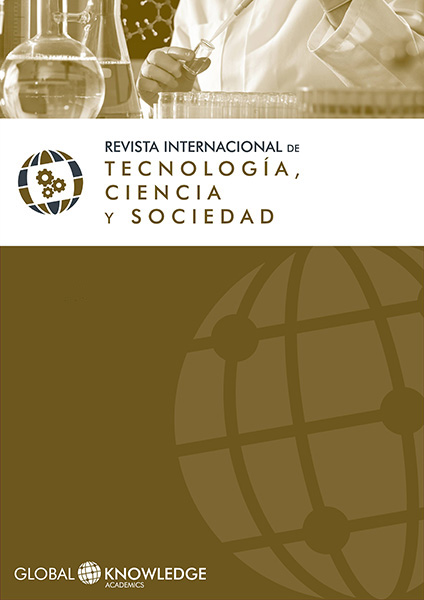Recovery of Historical Memory in Fiction Series through Social Networks. The case of Spain and Chile
DOI:
https://doi.org/10.37467/gka-revtechno.v5.454Keywords:
Historical Memory, Social Networks, Fiction, Social Construction, UsersAbstract
The time living fiction series on television is auspicious because its subject, technical and professional quality, and an example of this is the series of historical character. Its production involves not only designing the product for the small screen, but also do charitable work through the distribution of their content through social networks, generating an active contact with viewers who are both followers in the respective platforms digital. In this paper a study on the recovery of historical memory in fiction series through Internet social networks develops. The sample corresponds to the Spanish series Amar es para siempre and Cuéntame Cómo Pasó, which it has been applied to the speech content analysis to understand what variables, users delve on the recovery of memory in social networks.
References
Alonso, S. y Peyrí, T. (2013). Cuéntame. Ficción y Realidad. Barcelona, España: RBA Libros S.A.
Anania, F. (2010). La metodología de la investigación histórica y los medios de comunicación. En J.C. Ibáñez y F. Anania (coord.), Memoria Histórica e identidad en cine y televisión. (pp. 17-37). España: Comunicación Social.
Bardin, L. (2002). Análisis de Contenido. Madrid, España: Ediciones Akal.
Bereguer, G. (2011). Factores Internos. Motivación, percepción, aprendizaje, memoria y actitudes. En A. Mollá Descals, G. Bereguer Contrí, M. Á. Gómez Borja e I. Quintallina Pardo(coord.), Comportamiento del Consumidor. Barcelona, España: Editorial UOC.
Bourdieu, M. V. (2012). Memoria social y ficción televisiva. Contexto político de la mirada de pasado. Ponencia presentada en AsAECA III Congreso Internacional de la Asociación Argentina de Estudios de Cine y Audiovisual. Universidad Nacional de Córdoba. Disponible en: http://www.asaeca.org/actas.php?pg=8&anio=2012(consultado el 31 mayo 2013).
Castells, M. (2009). Comunicación y Poder. Madrid, España: Alianza Editorial.
Chicharro, M. del M. y Rueda, J. C. (2008). Televisión y ficción histórica. Amar en Tiempos Revueltos. Revista Comunicación y Sociedad, 21(2), pp. 57-84.
Cuesta, U. (2006). Psicología Social de las Comunicaciones. Madrid, España: Ediciones Cátedra.
Duch, L. y Chillón, A. (2012). Un ser de mediaciones. Antropología de la Comunicación.Barcelona, España: Editorial Herder.
Erice, S. F. (2008). Memoria histórica y deber de memoria: las dimensiones mundanas de un debate académico. Revista Interdisciplinar: Monográfico, 7,pp.77-86.
Ferro, M. (1980). Cine e Historia. Barcelona: Editorial Gustavo Gili.
Ganga, R. M. (2008). Memoria quebrada y consenso mediático de la transición.Quaderns de Cine, 3,pp. 63-77.
Garretón, M. A. (2003). Memoria y Proyecto país.Revista de Ciencia Política, 23(2), pp.215-230.
González Callejas, E. (2013). Memoria e Historia. Vandemécum de conceptos y debates fundamentales. Madrid, España: Ediciones Cátedra.
González Sánchez, J. (2004). Sobre la memoria. El pasado presente en los medios de comunicación. Revista HAOL, 4,pp. 153-164.
Halbwachs, M. (1968). La memoria colectiva. Zaragoza: Edición Española Prensa Universitaria de Zaragoza.
Lipovetsky, G. y Serroy, G.(2009). La pantalla global. Cultura mediática y cine en laera hipermoderna. Barcelona, España: Anagrama.
Maldonado, T. (2007). Memoria y Conocimiento. Sobre los destinos del saber en la perspectiva digital. Barcelona, España:Gedisa.
Miranda, C. (2010). Las transformaciones del relato cinematográfico y televisivo en la representación del pasado. Analecta Revista de Humanidades, 4,pp. 1-22.
Nerore, J. (1989). ProfessionalHistory and Social Memory.Communication, 11,pp. 89-104.
Potter, J. (1998). La representación de la realidad. Discurso, retórica y construcción social. Barcelona, España:Paidós.
Ricoeur, P. (1999). La lectura del tiempo pasado: memoria y olvido. Universidad Autónoma de Madrid.Disponible en: http://200.95.144.138.static.cableonline.com.mx/famtz/smr/index_archivos/cursos/Paul_Ricoeur_La_Lectura_del_Tiempo_Pasado_Memoria_y_Olvido.pdf. (Consultado 26 junio 2013).
Ricoeur, P. (1999). Historia y Narratividad. Barcelona, España: Paidós.
SánchezBisoca, V. (2006). Cine de Historia, cine de memoria. La representación de la realidad. Barcelona, España: Ediciones Cátedra.
Sánchez Zapatero, J. (2010). La cultura de la memoria. Revista Pliegos de Yuste, 11-12,26-30.
Yestes, E. (2009). El discurso de la memoria histórica en los Medios de Comunicación. Disponibleen http://www.ae-ic.org/santiago2008/contents/pdf/comunicaciones/390.pdf. (Consultado 15 julio 2013).
Yestes, E. (2009). Los medios revisitando el pasado: los límites de la memoria.Revista Anàlisi,38,pp. 71-80.
Wodak, R. y Meyer, M. (2003). Métodos de Análisis Crítico del Discurso. Barcelona, España: Gedisa.
Downloads
Published
How to Cite
Issue
Section
License
Those authors who publish in this journal accept the following terms:
- Authors will keep the moral right of the work and they will transfer the commercial rights.
- After 1 year from publication, the work shall thereafter be open access online on our website, but will retain copyright.
- In the event that the authors wish to assign an Creative Commons (CC) license, they may request it by writing to publishing@eagora.org







